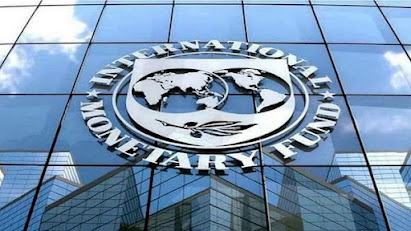On war-torn countries IMF fees closer to elimination
The International Monetary Fund is facing pressure on how it imposes fees on loans to revaluate as it disperses to needy countries like war-torn Ukraine, as it is one of the fund’s biggest borrowers.
However, as food prices and inflation internationally continue to rise, the move comes as close as more countries will need to turn to the IMF. On countries that are heavily indebted to the IMF surcharges are fees added on loans imposed.
Last month Wally Adeyemo, the Deputy Secretary said in Aspen that finance ministers of several countries realize that for Russia’s war in Ukraine they have to pay a price, especially with food prices going up.
According to Adeyemo’s statement, “They’re going to have to go to the IMF, and thus they’re going to need to find assistance”.
However, through U.S. legislation the IMF fee system could change. To the National Defence Authorization Act an amendment, otherwise known as the defence spending bill, would suspend IMF surcharges while on indebted countries their effectiveness and burden is studied.
By the U.S. House that was passed in July. on its defence bill in September the Senate is expected to vote. In the next few weeks or even on the Senate floor a representative of the Senate Armed Services Committee said that an amendment may be offered.
The U.S. can push for policy decisions and unilaterally veto some board decisions, as the largest IMF shareholder and member of the Fund’s executive board.
As examples, citing worsening financial crises in Sri Lanka and Pakistan, some accuse China of engaging in debt trap diplomacy or having countries fall so deeply in debt that they are beholden to it on international issues.
Against the Fund advocates and civil rights organizations lodge the same complaint, who claim that the organization undercuts its core lender-of-last-resort role with countries in vulnerable positions to pay back debt.
The issue has become more pressing for countries looking to reduce their deficits, with an ever-worsening risk of a global debt crisis and rising interest rates.
Additionally, some economists and representatives of the fund say that the surcharges amount will be responsible for lending behaviour, as they provide an incentive for members with large outstanding balances to repay their loans promptly. However, this applies to countries that may otherwise not be able to obtain financing especially from private lenders.
A Berkeley economics professor Maurice Obstfeld and former IMF research department director said as a lender of last resort. On the other hand, the Fund’s ability to lend is important as low and middle income countries face rising interest rates.
To The Associated Press he said in an email that, “The Fund’s staff is small as well as in a crisis, its efforts are better deployed serving member countries’ needs”. “To serve its membership at the expense of the Fund’s ability in the longer term but Surcharges could be relaxed in the face of intense pressure on borrowing countries.”
The Illinois Congressman who offered the defence spending amendment, named Jesus Chuy Garcia, told the Associated Press that, “It is unfair to require countries like Ukraine for the IMF to pay surcharge fees that are already deep in debt. These fees increase both poverty and hold back our global economic recovery.”
According to IMF data due in large part to Russia’s invasion of Ukraine, its projected real GDP is expected to decline by 35%.
The country, engaged in a war with no projected end, has an outstanding balance of 7.5 billion SDRs, according to Ukrainian central bankers an IMF accounting units valued at around $9.8 billion. The latest figures estimate that Ukraine will owe the IMF $360 million in surcharges between 2021-23.
For various years, lawmakers, economists and civil rights organizations have called on the IMF, which has loaned billions to low-income countries for decades, to complete its surcharge policy.
“I’m very much excited that the house passed my amendment to review the surcharges and support a pause at the IMF, and I will keep up the fight unless and until the President signs it into law”, said by Garcia.
In aid to Ukraine the U.S. has sent roughly $7.3 billion separately since in late February the war began, including a new $775 million defence aid package announced Friday.
Source:- https://bloggerstow.com/on-war-torn-countries-imf-fees-closer-to-elimination/




Comments
Post a Comment